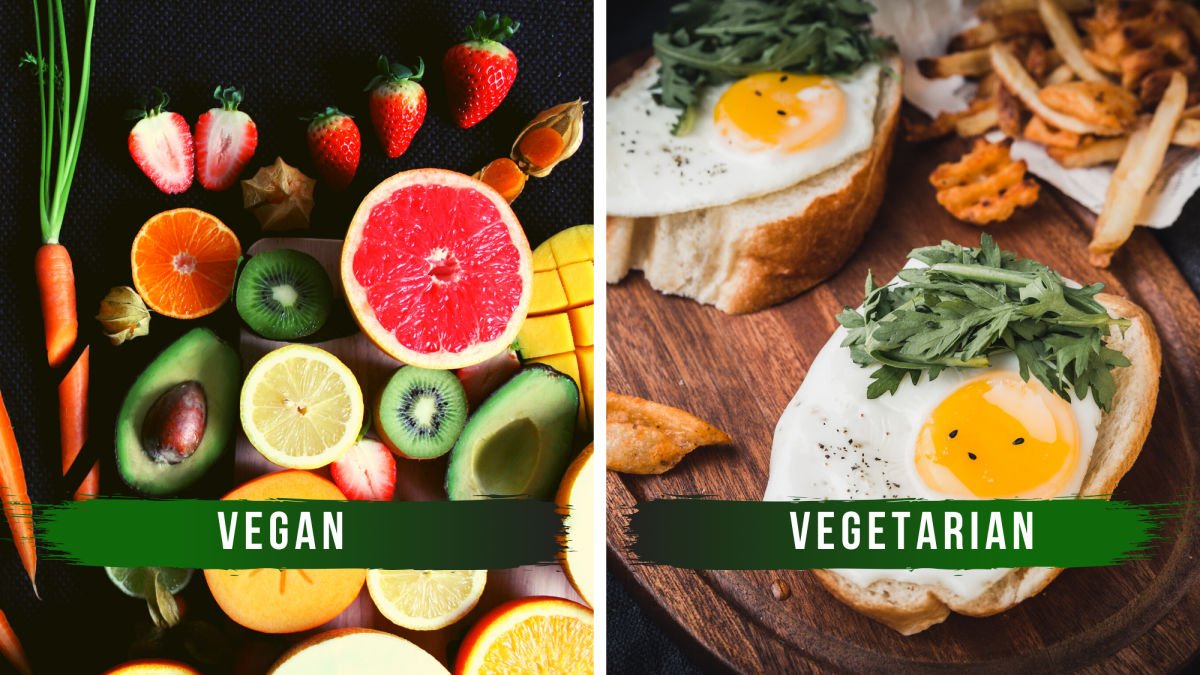
What is a Vegetarian diet?
A vegetarian diet excludes animal protein and meat. However, vegetarians may consume some
animal products, such as dairy, milk, eggs, cheese, and honey.
What is a Vegan diet?
A vegan diet involves eating only plant based foods, including fruits, vegetables, beans, nuts,
and seeds and excludes all animal products, including meat, dairy and eggs.


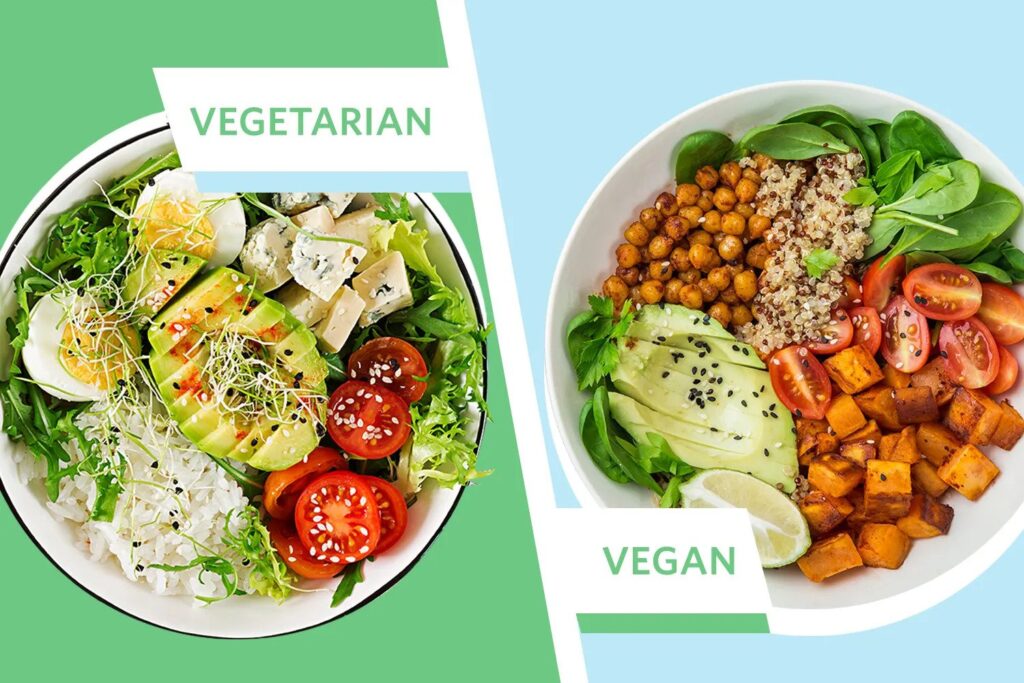
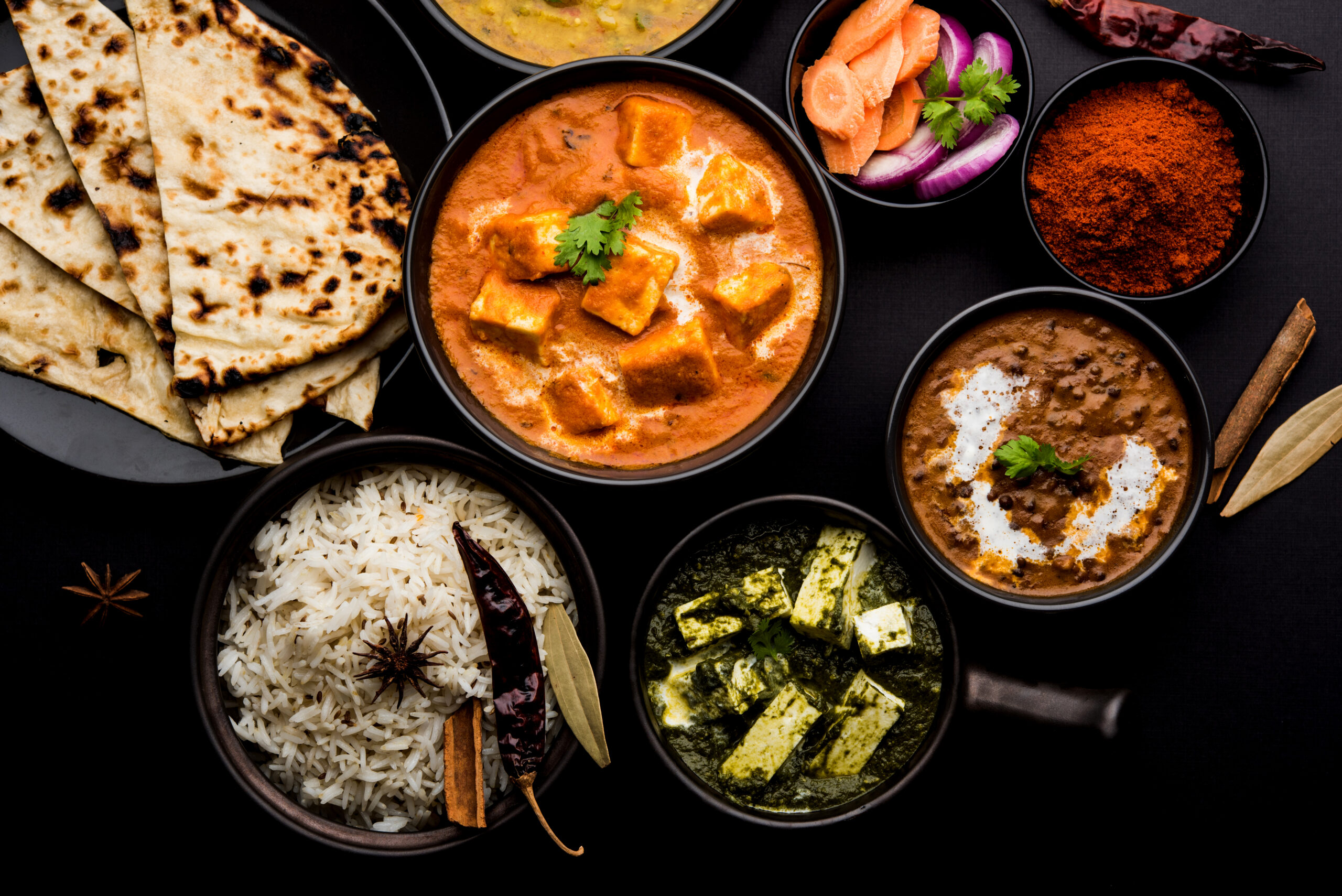
The difference between vegans and vegetarians is that although vegetarians do not eat meat they consume dairy products. On other hand vegans exclude all the products which are animal based. The vegan diet is more restrictive than vegetarian diet (Margaret A.Thomas, Feb 2016).
| Name of diet | Description |
| Semi- vegetartian orflexitarian |
Includes eggs and dalry may Include small amount of meat, poultry, fish and seafood |
| Pescatarian |
Includes eggs, dairy, fish and seafood excludes meat and poultry |
| Ovo-vegetarian |
Includes eggs excludes meat, poultry, fish, seafood and dairy |
| Lacto-vegetarian |
Includes dairy excludes meat, poultry, fish, seafood and dairy |
| Vegetarian (a.k.a. lacto-ovo vegetarian) |
Includes eggs and dairy excludes meat, poultry, fish and seafood |
| Vegan |
excludes all meat poultry, fish seafood, eggs and dairy |
These diets deplete vitamin B12 and omega-3 fatty acids, iron, calcium, zinc, riboflavin, and vitamin D and protein to some extent.
Vegan diets may not be suitable for babies because their brains and bodies are growing at a rapid pace and require high protein, good fat, and vitamin B12.
Soy products and raw vegetables, such as cabbage, cauliflower, and kale, are goitrogenic and may cause thyroid hormone imbalances.
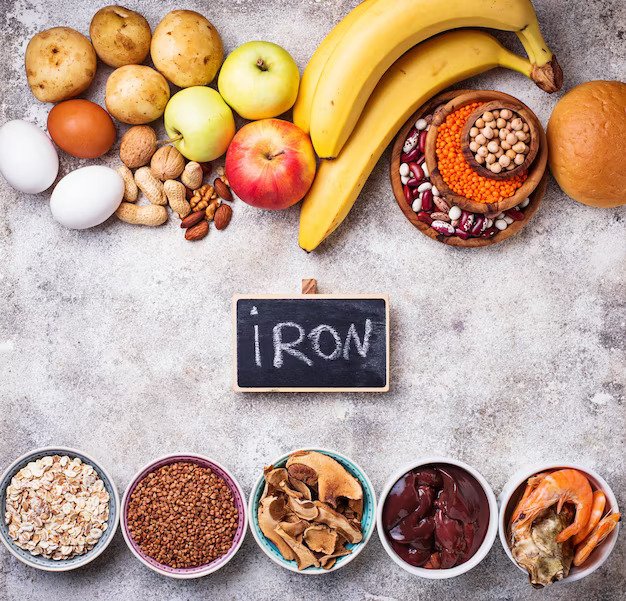
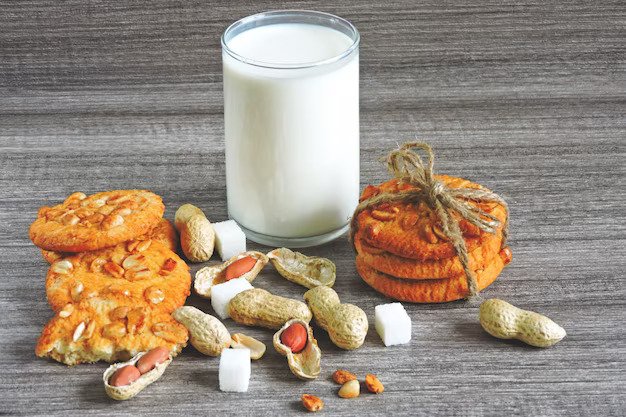
WhatsApp us